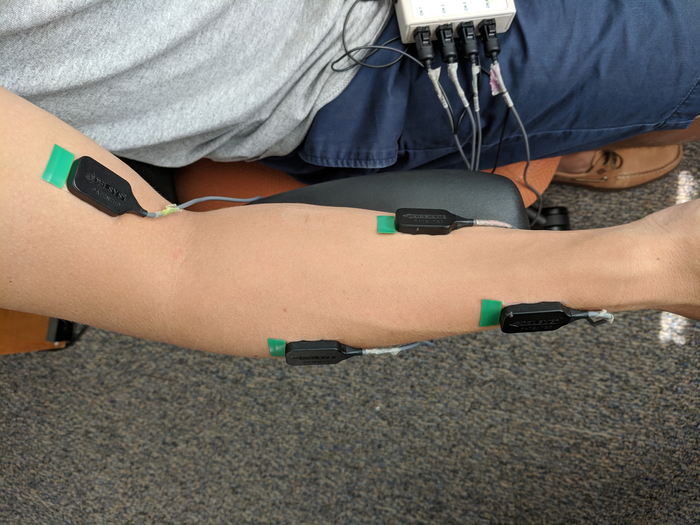Practice makes perfect, but sleep helps, too. Learning and executing a new motor skill can be enhanced if you can get additional memory processing during sleep, according to new research published in JNeurosci.

Credit: Cheng et al., JNeurosci 2021
Practice makes perfect, but sleep helps, too. Learning and executing a new motor skill can be enhanced if you can get additional memory processing during sleep, according to new research published in JNeurosci.
Researchers at Northwestern University compared how well participants performed a challenging motor task with and without the extra processing during sleep. The participants played a computer game using a myoelectric computer interface, which enabled them to move a cursor by activating specific arm muscles. Each command to move the cursor in a particular direction was paired with a unique sound; after practicing, the participants played the game blindfolded and moved the cursor based on the sound cue alone.
After completing a test round, the participants took a 90-minute nap. The researchers played half of the sound cues during the nap, reactivating the motor memories associated with each cue. After the nap, the participants performed the motions cued during sleep better than the uncued ones: it took less time to move the cursor, the cursor traveled a more direct route, and fewer superfluous muscles were activated. These results show we can improve the performance of new motor skills by reactivating memories during sleep. This approach could be a way to enhance rehabilitation for stroke or other neurological disorders.
###
Paper title: Memory Reactivation During Sleep Improves Execution of a Challenging Motor Skill
Please contact [email protected] for the full-text PDF and to join SfN’s journals media list.
About JNeurosci
JNeurosci, the Society for Neuroscience’s first journal, was launched in 1981 as a means to communicate the findings of the highest quality neuroscience research to the growing field. Today, the journal remains committed to publishing cutting-edge neuroscience that will have an immediate and lasting scientific impact, while responding to authors’ changing publishing needs, representing breadth of the field and diversity in authorship.
About The Society for Neuroscience
The Society for Neuroscience is the world’s largest organization of scientists and physicians devoted to understanding the brain and nervous system. The nonprofit organization, founded in 1969, now has nearly 37,000 members in more than 90 countries and over 130 chapters worldwide.
Journal
JNeurosci
DOI
10.1523/JNEUROSCI.0265-21.2021
Subject of Research
People
Article Title
Memory Reactivation During Sleep Improves Execution of a Challenging Motor Skill
Article Publication Date
18-Oct-2021
COI Statement
The authors declare no competing interests.




